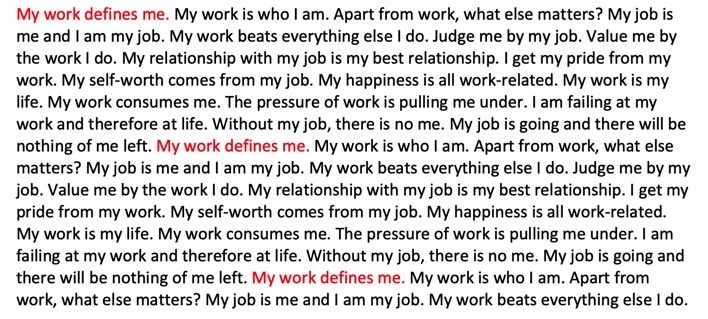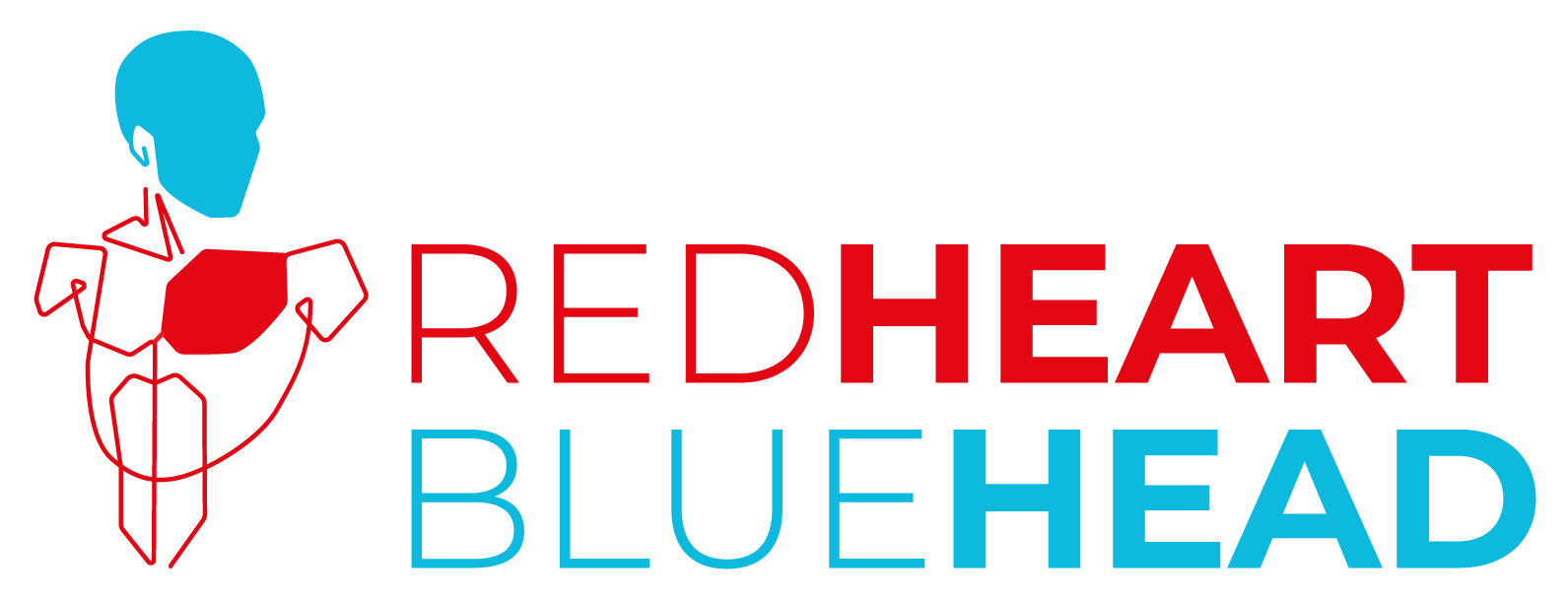Our jobs don’t define us. We do!

The importance of work
In a 2019 US survey by Yellowbrick, 70% of the 2,000 millennials surveyed said they identified themselves only by their jobs. They didn’t think that their own actions, family, friends, faith, country or hobbies were more important. That seems to be a pretty stark indictment on modern life. Our jobs don’t define us. We do.
Even if you live and breathe your job, it doesn’t mean that it defines you. Work is important, but we can get so wrapped up in our work that we can’t see our own worth. We can also run so hard on the wheel, that we can’t smell our relationships, dreams and mental health burning out.
People over titles
No one is just a job title, or an employee number. Being a manager, director or partner doesn’t define you as a person. Your organisation’s results don’t define you as human being. Your performances against your targets and KPIs don’t define you either, they don’t even describe you. Your character, beliefs and behaviours are what define you.
Your financial position is important (of course it is) but it shouldn’t define how you feel about yourself. Your relationships with other people are what matter, not the numbers on the spreadsheets and bank statements. How you feel about other people and how they feel about you is what life’s really about. And, of course, good relationships are what produce good team performances. None of us truly does anything alone. We need each other.
The pressure of work
When things aren’t going well at work, your job can get on top of you. Sometimes the pressure of work can be immense, if not overwhelming. That’s understandable, but only to an extent. Our job pays our mortgage and bills. It affects our future prospects. It’s what we do. But it’s just a job. It’s what we do when we’re at work. When we lose ourselves in our job, we lose sight of what we’re really worth. When we face criticism or disappointment at work, it can adversely and disproportionally affect us. But we shouldn’t let it. We can be too quick to judge ourselves, based on our work alone. We are much, much more than that.
Success at work is good for us, as long as we don’t sell ourselves short, or sell ourselves out. Doing well in our job can give us pride and self-esteem. That’s great, as long as we have our relationship with work under control. It shouldn’t be everything we judge ourselves by. One way to assess the health of your relationship with work, is to ask how you’d feel if you tried your best and still didn’t hit a target.
When we try our best, we can’t do any more than that. We should be satisfied. We shouldn’t beat ourselves up because a sale didn’t go through, or because we missed a chance to close a deal or secure a win. Sometimes our best doesn’t get the result we want. But that’s only our best on that specific occasion. Next time can be different. We can learn how to improve. We can get better.
All our efforts matter
It’s also vital to to understand that a perceived failure is not all on us. We don’t have to carry the can for our colleagues’ or organisation’s failings. Any lack of organisational strategy, investment, training, supervision, communication, brand reputation or resources places limits what we can do as individuals. If we’re failing, it’s often because the organisation is failing first. Good employers understand that and work tirelessly to do their part. Good managers of people can create an environment that supports and powers their team. Inexperienced, unsupervised, untrained and unaccountable managers can undermine it.
We shouldn’t be too hard on ourselves unless we haven’t really tried, or we’ve behaved badly towards other people. And those behaviours are well within our control. If you have the title of manager, director or partner, there’s a responsibility to treat your people well. That’s what build loyalty, trust and respect. You shouldn’t be condescending, lazy, or inappropriate to your colleagues.
And just because you’re important at work doesn’t excuse you from mucking in at home or helping out a neighbour in need. Our behaviours are even more important outside work than inside it. And it’s how we behave that truly defines us. Not our jobs. Ironically, the more we value ourselves and the people we come across, the better the job we’ll do at work.
Don’t define yourself by your current job
When work doesn’t go well and we face doubts about ourselves (and we all do) just think of this. Your success isn’t defined by your current performance in your current job. It’s down to you and your attitude to learning and development. Start by setting reasonable expectations for yourself. Too many people set Gold as the only standard. Aim for Gold, but you don’t have to finish first to ‘win’. Before you start, realistically define what absolute and relative success mean. A team with less experience or fewer resources might still ‘win’ even if it doesn’t finish first. You haven’t failed if you’ve had relative success.
What is delayed is not denied
When work doesn’t go as well as we like, how do we get passed the feelings of disappointment and failing? Firstly, a failure isn’t final. It doesn’t define us. Failing allows us to learn how to do things better. It’s part of a test we have to face and pass. But the process of figuring out how to do it better next time, is precisely the lesson we need to learn. Testing is learning. If you can hold your nerve, your time will come. That won’t make your journey easy. Life is hard. We all get tested every day. And that testing won’t stop. So accept it and, if you can, embrace it.
If your organisation offers you a safe place to try, fail and try again, you’re in a great place to learn. As the great American basketball player and coach Dawn Staley says “What is delayed is not denied. Keep the faith.”
How we deal with our setbacks and our failures in life (and we all have them) can help to define us in a very positive way. Remember that work is only a job and it doesn’t define you. When we’ve remembered work’s limited importance and who we are, we can step forward once again. Be who you want to be, don’t let your work change who you are. Don’t let it define you. It doesn’t. You do.
